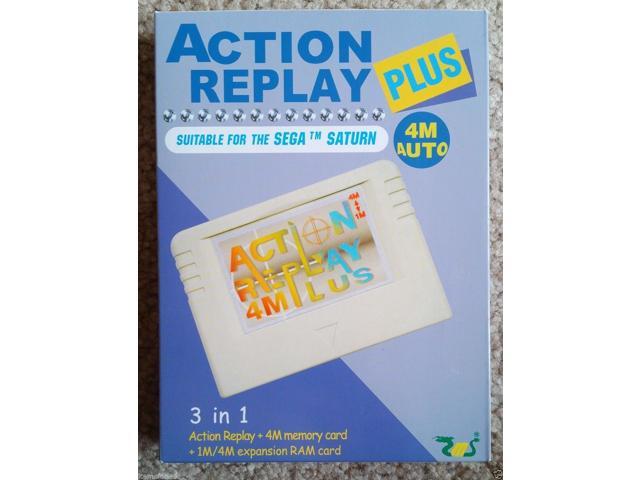고정 헤더 영역
상세 컨텐츠
본문
More on Nintendo Ds Action ReplayData Added 1: March 20, 2012iDVDrip DVD to DPG Converter is a powerful DVD to DPG converter software to convert and normalize DVD to DPG for Nintendo DS fans.it makes you can watching DVD movies on your Nintendo DS. It owns the ability to rip all the contents on your favorite DVDs to DPG/DPG2/DPG3/DPG4 video formats and MP3, MP2 audio formats playable on Nintendo.
Just wanted to weigh in on this issue, though I realize it's a few months ago Regarding NES and 6 vs 8:Yes, obviously a 6 letter code could patch several areas of a ROM, but it needs context. As you well know, GG treats 6 letter codes as 'any time the console is requesting a byte from address X, send them byte value Y intead.' And an 8 letter code is 'any time the console is requesting a byte from address X, and the cart is returning byte Y, return byte Z instead.' (The 'compare' method.)Any time we have a game that's using a mapper that modifies the 32KB ROM space (and almost all of them do), if a code is intending to patch the dynamic part of that window, it best be an 8 letter code or there could be severe side effects. I would imagine that most of the originally released GG codes in the books were 6 letters for fixed window games and 8 letters for complex mapper games, but I haven't checked.But here's where it gets sketchy: For example, Super Mario Bros. 3 uses an MMC3, which means that the 32KB ROM space is broken up into 4 windows, where two are fixed and two are dynamic. The MMC3 always locks $E000-$FFFF to the last 8KB bank (at least the end of this address area needs to be predictable to support the vectors.) Then the programmer has an option about choosing a second fixed bank.
In SMB3's case, they use $8000-$9FFF as the second fixed space.Okay, so where I'm going with this is, a 6 letter GG code for SMB3 needs context - if the 6 letter code is patching $8000-$9FFF or $E000-$FFFF, it should only be applied once, and only to (starting from 0) bank 30 (i.e. Second-to-last bank) or 31 (last bank), respectively. But since there's an option in the MMC3 to make $C000-$DFFF fixed instead (SMB3 doesn't use this), so a different MMC3 game should have the above rule effect this address space instead. So a 6 letter code applied to a fixed region of a mapper-based game is in fact valid and will only target a particular bank in the ROM. Sometimes you can predict what this is (e.g. If a ROM is using an MMC3, you KNOW where $E000-$FFFF codes will land), and sometimes you can't (e.g. Any other region in an MMC3 game, unless you know the rules of said game.)In short, some 6 letter codes effect a fixed region even when using a mapper and thus ARE valid (in the sense there's no unintended patching and the code is predictable) for those games.
Action Replay Codes 3ds

Action Replay Cheat Codes
Any 6 letter code in SMB3 effecting $8000-$9FFF or $E000-$FFFF would actually be valid and would only effect the end of the ROM. (SMB3 never puts bank 30 or 31 into the dynamic space, which would be silly anyway since the addressing would be wrong.)What it boils down to is, the best response we can get from your software is one of the following:. Never allow applying a 6 letter GG code to any game where the 32KB ROM window can change (check the mapper for very specific ones on a short list). Write code for each known mapper to allow a 6 letter GG code to apply when it's predictable (e.g. MMC3 $E000-$FFFF), but deny user when it's not.
Action Replay Codes Converter Weight Calculator
Write code for each known mapper to allow a 6 letter GG code to apply when it's predictable, and when it's not allow user to select some kind of override option (getting complex, and would require user to be technically-aware.). Write code for each known mapper to allow a 6 letter GG code to apply when it's predictable (e.g. MMC3 $E000-$FFFF), consult some kind of database of 'game rules' (e.g. For SMB3, $8000-$9FFF or $E000-$FFFF are predictable, other regions overwrite all banks except 30 and 31), and finally deny user if there's no further infoTechnically speaking, an 8 letter code is also subject to this, though on a lower impact level. It is possible (though less likely due to 'compare') that another bank that would never be in the address window specified by the code is erroneously targeted due to the software not having context.




